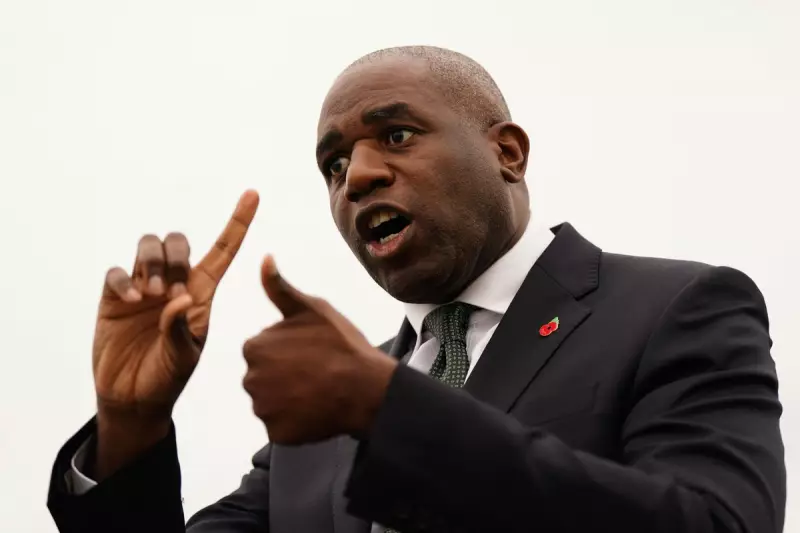
In a dramatic escalation of parliamentary tensions, Shadow Foreign Secretary David Lammy launched a blistering attack on the government during a heated House of Commons exchange on Wednesday. The Labour frontbencher condemned what he described as "disgraceful" treatment of a fellow MP after police physically prevented the politician from entering the voting lobby.
Parliamentary Procedure Turns Physical
The extraordinary scene unfolded as MPs gathered to vote on the government's controversial economic measures. According to eyewitness accounts, a Labour MP was physically barred by police from accessing the division lobby - the designated voting area - despite attempting to participate in the crucial parliamentary procedure.
"What is disgraceful is that one of my honourable friends was manhandled by the police and stopped from voting in this House," Lammy declared from the despatch box, his voice rising with indignation. The intervention prompted gasps and murmurs across the chamber.
Government Minister Faces Backlash
Business Secretary Kemi Badenoch, representing the government during the debate, faced immediate backlash from opposition benches. As Labour MPs voiced their outrage, Badenoch attempted to deflect criticism by referencing Labour leader Keir Starmer's previous comments about the police.
Lammy swiftly countered the minister's remarks, drawing a sharp distinction between political commentary and the physical prevention of an MP performing their democratic duty. "There is a world of difference between that and actually being stopped from voting," he asserted, highlighting the constitutional significance of the incident.
Constitutional Implications
The confrontation raises serious questions about parliamentary privilege and MPs' rights to unimpeded access within the Palace of Westminster. Constitutional experts suggest that preventing an MP from voting represents a significant breach of parliamentary convention, potentially undermining the fundamental principles of democratic representation.
As tensions continue to simmer, the incident has sparked broader discussions about security protocols versus parliamentary access rights. Opposition figures are demanding a full investigation into the circumstances that led to police intervention, while government representatives have yet to provide a comprehensive response to the allegations.
The controversy comes at a sensitive time for the government, which faces increasing scrutiny over its approach to parliamentary process and opposition rights. With both sides digging in their heels, this clash seems certain to fuel further political battles in the coming days.






